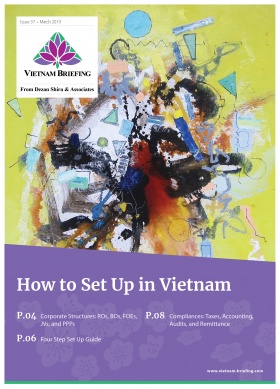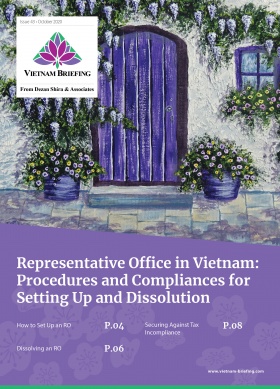Why Vietnam’s Emergence as a Startup Hub is Promising for Investors
- Vietnam has emerged as a regional startup hub in Southeast Asia with investments worth US$815 million at the recent Vietnam Ventures Summit.
- Key sectors in the startup space include fintech, e-commerce, and enterprise solutions. Vietnam’s digital economy offers numerous opportunities for disruption at scale.
- Foreign investors have played a key role in fuelling the growth of Vietnam’s startup ecosystem and recent regulations have attempted to streamline investment regulations surrounding foreign investors such as VCs.
Vietnam’s emergence as a startup hub received a boost at the recent Vietnam Ventures Summit 2020, where investors signaled their intent to invest US$815 million in startups. The agreement covers 33 foreign and domestic investment funds including CyberAgent Capital, 500 Startups, AlphaJWC, Monk’s Hill Ventures, and Access Ventures. Last year, investment commitments totaled US$415 million. The US$400 million increase in investments in 2020 reflects a belief that Vietnam could rival Indonesia as Southeast Asia’s growth market for tech investments.
Vietnam’s startup ecosystem
Since 2017, Vietnam has emerged as a hub for startups, closely competing with Indonesia and Singapore. In the first half of 2019 for instance, Vietnamese startups raised US$246 million with startups such as Tiki, VNPay, and VNG capturing 63 percent of these deals.
The first half of 2020 witnessed a 22 percent reduction in deals compared to the same period in 2019 owing mainly to the economic impact of COVID-19, however fundraising by Vietnamese startups has shown signs of recovery in the second half of 2020.
There are numerous drivers of Vietnam’s emergence as a startup hub in Southeast Asia. These include revenue growth in digital sectors such as fintech and e-commerce, rising consumer spending, increasing interest from foreign investment funds particularly Japanese, Singaporean, and South Korean VC funds, and targeted government support.
Foreign investors have played a major role in funding Vietnamese startups. In February 2020, Affirma Capital invested US$34 million in Sieu Viet Group, which focuses on online recruitment. Japan’s SoftBank and Singapore’s GIC invested US$300 million in VNPay. US-based 500 Startups aims to invest in 80 Vietnamese startups by 2021.
Tech sector dominates
The tech sector dominates the startup ecosystem in Vietnam. Between 2016 and 2019, invested capital in tech startups has risen by a factor of eight reaching a peak of US$861 million in 2019. Hanoi and Ho Chi Minh City in particular have developed a robust ecosystem for tech startups. Sectors such as e-commerce, fintech, AI, food-tech, enterprise solutions, and information technology services have dominated funding rounds in recent years.
In fintech for instance, there were 123 startups in Vietnam in 2020 compared to just 44 in 2017. These trends reflect the strong potential for growth in Vietnam’s digital economy and the ability of Vietnamese startups to capture market opportunities.
Government support
To encourage entrepreneurship, the Vietnamese government has established a number of funds at State and provincial/city level to support startups. In addition, the government has also collaborated with countries and banks to develop funding and innovation programs, provide loans, technical training, and business mentoring. Some of the programs are as follows:
- SpeedUP is a VND 11.75 billion (US$ 520,520) fund, which has been started by Ho Chi Minh City’s Department of Science and Technology. The fund has a range of investments ranging from VND 350 million (US$15,500) to VND 1,282 billion (US$56,792).
- Startupcity.vn is an online platform launched by Hanoi’s People Committee that has details about startups and investors and aims to connect investors with entrepreneurs.
- Vietnam – Finland Innovation Partnership Programme is a program financed jointly by both governments. The second phase ran through 2014-2018 with a budget of EUR 11 million. The programme’s portfolio includes Abivin (big data analytics), Beeketing (online marketing), Entobel (sustainable feed supplier), and Ezcloud (integrated hotel management solutions) among others.
- Saigon Silicon City Center is a 52-hectare complex, which is being built to support tech-focused startups and international firms. It is expected to attract investments worth US$1.5 billion by 2020 in target industries such as microelectronics, precision engineering, biotechnology, and nanotechnology among others.
- Mekong Business Initiative is a partnership program between the Asian Development Bank and the Government of Australia that focuses on alternative financing, including venture capital, angel investments, and fintech in Cambodia, Laos, Myanmar, and Vietnam.
- Mobile Applications Laboratory (mLab) East Asia was launched by Ho Chi Minh City and has an incubation program that focuses on mentoring, training, access to equipment, and financing.
- National Technology Innovation Fund (NATIF) is a government agency and financial institution under Vietnam’s Ministry of Science and Technology that provides grants and preferential loans for R&D, innovation, and technology transfer.
- National Agency for Technology, Entrepreneurship, and Commercialization Development (NATECD) is a national platform under Vietnam’s Ministry of Science and Technology that provides training, mentorship, and financial aid
Startup regulations
In January 2018, the Law on Supporting Small and Medium-Sized Enterprises came into effect, with detailed provisions for support to start-ups in areas such as technology transfer, training, trade promotion, investments, preferential loans, and incentives for venture capital funds.
Under Vietnam’s Law on Support for Small and Medium-sized Enterprises, a startup is defined as a ‘small- or medium-sized enterprise that is established to realize an idea by exploiting intellectual property, technology and/or new business model and capable of growing fast’. This definition, therefore, builds on two key economic features of a startup: innovation and capacity to scale.
Following this, Decree 38/ND-CP, which came into effect in March 2018, focuses on innovative start-up investments. It identifies and recognizes start-up investment activities as a business and provides legal status to innovative start-up companies and funds. In addition, one of the regulations stipulates that the State can also invest in a startup, with a maximum of 30 percent of the total investments.
In 2016, the Prime Minister approved the “Supporting National Innovative Start-up Ecosystem to 2025” Project, or Project 844, through Decision 844/QD-TTg/2016. It focuses on supporting the national innovation startup ecosystem through 2025 and developing a legal system and a national e-portal for startups by 2020. In addition, it will also provide funding support to 200 startup enterprises.
Decree 76/ND-CP builds on the Law on Technology Transfer and allows for the use of Science and Technology Development Funds which have tax exemptions to invest in startups.
Regulatory trends suggest that the government’s focus is on attracting foreign investment in startups, promoting crowdfunding and P2P lending, and sustaining investor networks in Vietnam.
ASEAN startup ecosystem
Southeast Asia currently has a population of around 655 million people with a median age of 30 years. Driven by young demographics and rising discretionary spending, the region has seen a rapid rise in new startups: 11 unicorns have emerged in the region over the past decade alone.
According to Tech in Asia’s data, investments in the region’s startups grew from US$2.52 billion in 2016 to US$7.7 billion in 2019. Singapore and Indonesia continue to lead in the region, with e-commerce, logistics, agri-tech, fintech, and digital payments emerging as the most attractive sectors. Vietnam’s first unicorn, VNG is an online gaming and platform company.
Vietnam’s startup space promising but challenges remain
Major challenges facing the startup community in Vietnam is the lack of a talented workforce, funding, lack of scale, and slow regulatory reforms. In addition to financial support through funds and preferential loans, the government needs to increase investments in training and education to build a skilled workforce.
It also needs to continue with its regulatory reforms, as this will lead to a friendly business environment for investors and developers. This will not only attract much needed foreign investments but also the talented workforce from the surrounding region, which will help firms to achieve reasonable scale.
Going forward, the ability and capacity of Vietnamese startups to redesign business models in light of COVID-19 will also be key to funding outcomes. COVID-19 has brought into focus the need for startups to be consumer responsive, rapidly innovative, and fiercely competitive.
High growth, demographics offer significant potential for startups
Vietnam, driven by its growing internet penetration, smartphone adoption, and young demographics, offers huge potential for startups, especially ones focusing on fintech, e-commerce, and enterprise solutions. These sectors have attracted significant portions of funding in the last year. Other emerging sectors include education technology, agri-tech, and logistics.
Note: This article was first published in June 2018, and has been updated to include the latest developments.
About Us
Vietnam Briefing is produced by Dezan Shira & Associates. The firm assists foreign investors throughout Asia from offices across the world, including in Hanoi and Ho Chi Minh City. Readers may write to vietnam@dezshira.com for more support on doing business in Vietnam.
- Previous Article Why You Should Invest in Vietnam’s E-commerce Industry
- Next Article Warum Vietnams Aussichten für 2021 rosig aussehen































